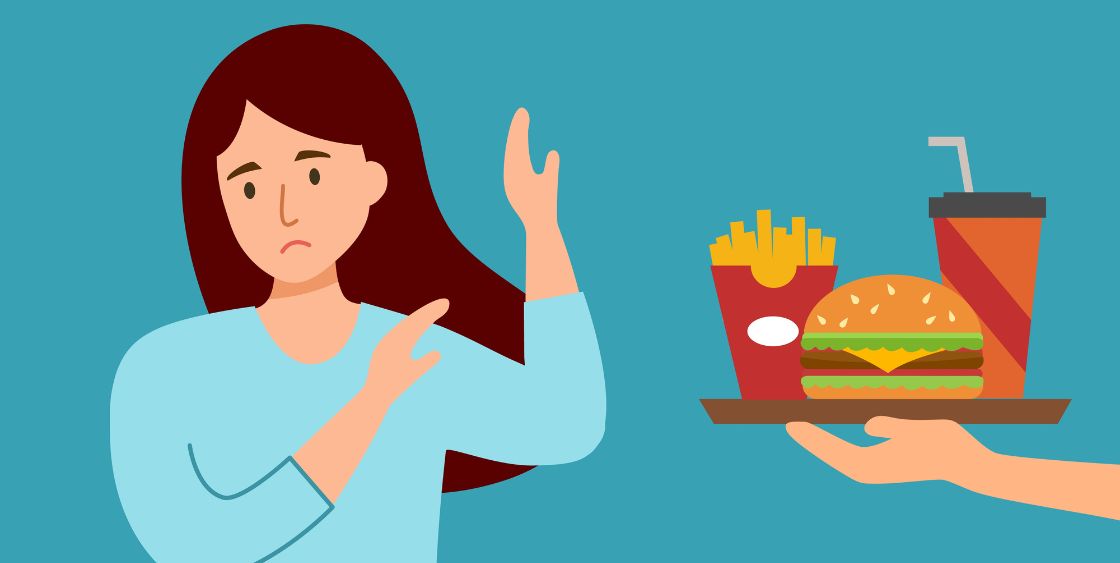Eat This, Not That If You Have GERD
- Category: LiveSmart
- Posted On:
- Written By: Baldwin

What you eat may trigger or relieve symptoms of acid reflux.
If you have gastroesophageal reflux disease (GERD), what you eat or drink can make a difference in how you feel. The most common symptom of GERD is heartburn – a burning sensation in your chest or throat. This occurs when stomach acid flows back up into your esophagus and irritates the lining.
GERD symptoms can be triggered by what you eat, since some foods cause the stomach to release more acid or may sit in the stomach longer during digestion. Symptoms may also be affected by how much you eat, what time you eat and what you do before and after eating, such as whether you lie down or recline shortly after eating.
Although there is no guarantee that eating or avoiding specific foods may make your GERD symptoms better or worse, there are some foods that are more likely to exacerbate or relieve acid reflux. Of course, each person's trigger foods are different, so it is best to determine how any particular foods make you feel before deciding if you should include or limit them in your diet.
Foods That May Improve GERD Symptoms
Managing GERD is about experimenting to see which foods do not trigger symptoms. Very often, following a healthy balanced diet reduces acid reflux, with the exception of some healthy foods, such as tomatoes and citrus fruits. Foods that are more likely to be well-tolerated if you have GERD include:
- Non-citrus fruits
- Vegetables
- Whole grains
- Legumes
- Lean meats
- Low-fat dairy
- Healthy fats
Foods with a higher pH (alkaline foods) may help offset stomach acid. Examples of alkaline foods include:
- Bananas
- Melons
- Broccoli
- Cauliflower
- Fennel
- Nuts
- Ginger
Foods that contain a high water content may also weaken the effect of stomach acid. Consider eating watery foods such as:
- Lettuce
- Cucumber
- Celery
- Zucchini
- Watermelon
- Herbal tea
Foods That May Trigger GERD Symptoms
These foods are more likely to make acid reflux worse in people with GERD:
- Fast food
- Fried food
- Spicy food
- Fatty meats
- Cheese and other full-fat dairy
- Processed snacks
- Tomatoes and tomato-based sauces
- Citrus fruits and juices
- Chocolate
- Peppermint
- Caffeinated drinks, such as coffee
- Carbonated drinks, such as soda
Diet and lifestyle changes are the most effective ways to control GERD symptoms. Some people also need to take prescription or over-the-counter medication. If you have heartburn or other symptoms of acid reflux two or more times a week and you can't manage symptoms through diet and lifestyle changes, see a doctor.
For more LiveSmart articles, visit www.McKenzieHealth.org/LiveSmart.
Copyright 2023 © Baldwin Publishing, Inc. Health eCooks® is a registered trademark of Baldwin Publishing, Inc. Cook eKitchen™ is a designated trademark of Baldwin Publishing, Inc. Any duplication or distribution of the information contained herein without the express approval of Baldwin Publishing, Inc. is strictly prohibited.
Date Last Reviewed: September 14, 2023
Editorial Review: Andrea Cohen, Editorial Director, Baldwin Publishing, Inc. Contact Editor
Medical Review: Jane Schwartz, RDN, CLT
Learn more about Baldwin Publishing Inc. editorial policy, privacy policy, ADA compliance and sponsorship policy.
No information provided by Baldwin Publishing, Inc. in any article is a substitute for medical advice or treatment for any medical condition. Baldwin Publishing, Inc. strongly suggests that you use this information in consultation with your doctor or other health professional. Use or viewing of any Baldwin Publishing, Inc. article signifies your understanding and agreement to the disclaimer and acceptance of these terms of use.
